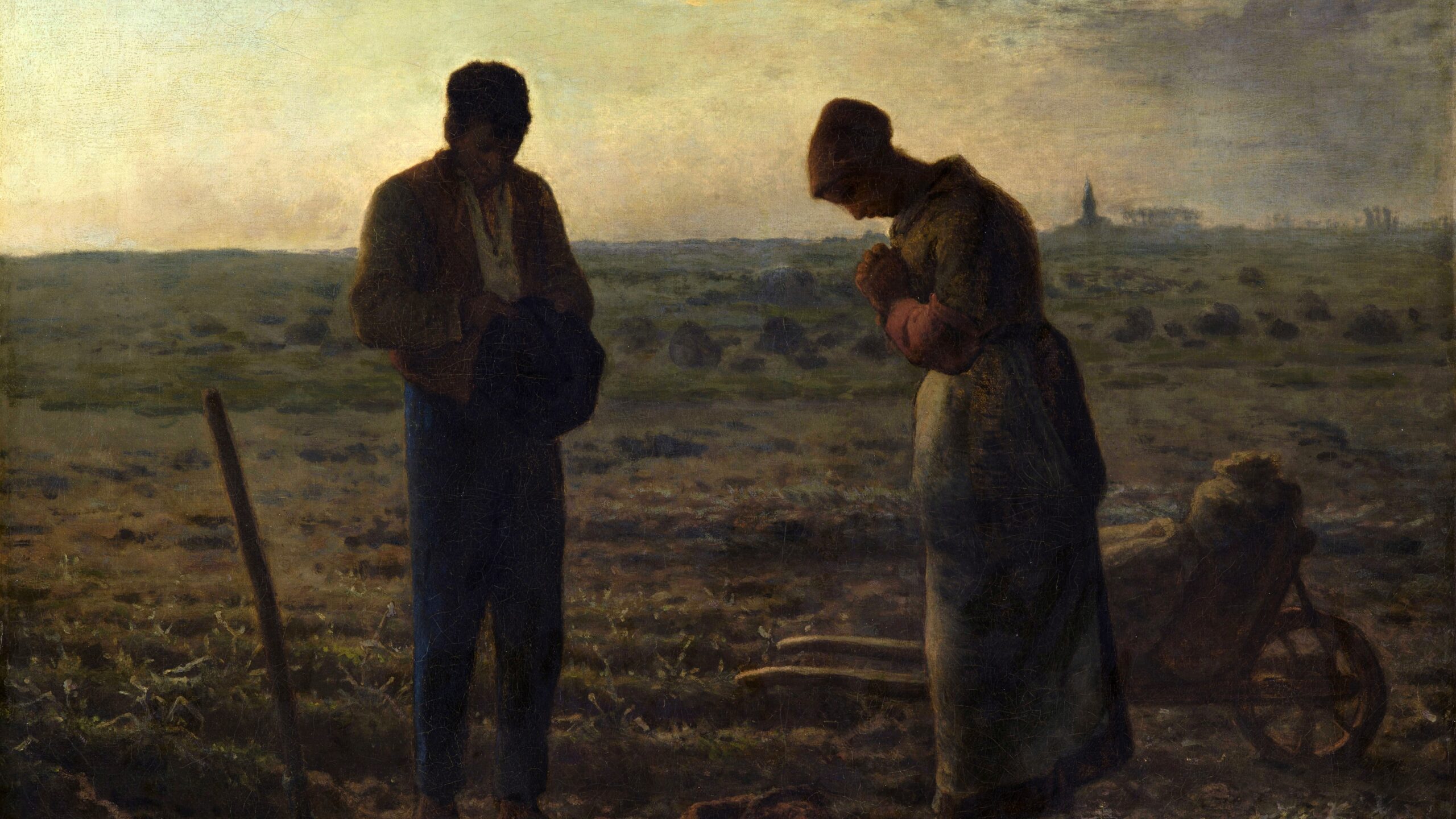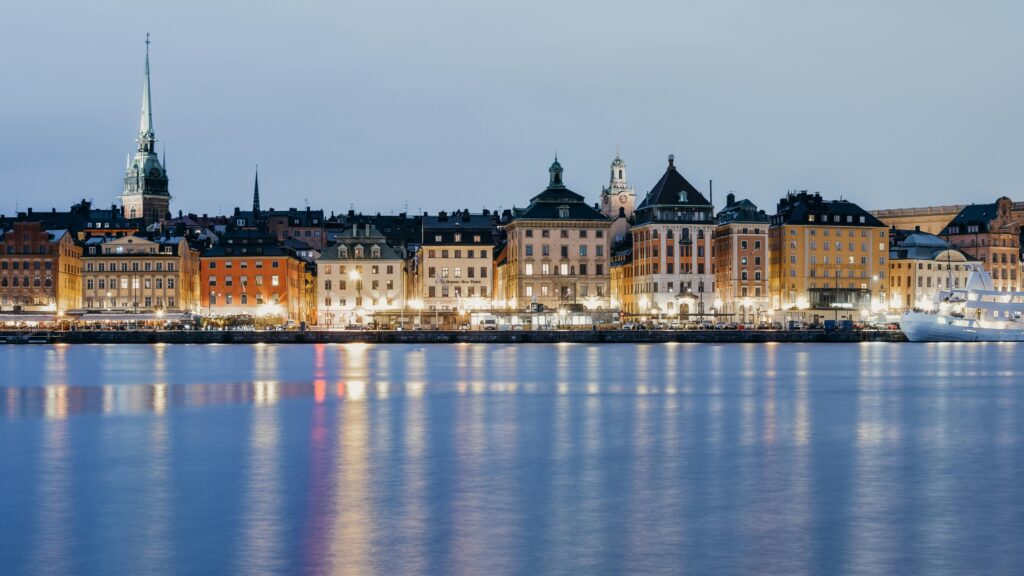For those conservatives—among whom I count myself—who are critical of the federalization project of the European Union, I believe we have been, perhaps unwittingly persuaded by populism, fighting a losing battle.
Even though we are witnessing populist revolts, marked by the rise of parties such as AfD in Germany, PVV in the Netherlands, FPÖ in Austria, and others, I believe the sovereignty question in Europe is not merely one of democracy. Much of the criticism of the European Union has focused on its lack of transparency, accountability, and democratic representation. Don’t get me wrong—these are valid and important concerns.
However, beneath the populist critique of the EU’s promotion of so-called ‘European values’ (often equated with progressivism) lies a deeper anxiety: that these values erode the sovereign national cultures and traditions of our beloved European nations. Ironically, it is now modern conservatives who defend the nation-state—once a progressive project that displaced the traditional conservative way of life rooted in local communities and customs.
A good example of this shift can be seen in France. Beginning in the late 18th century—though the process began earlier—deliberate policies were enacted to centralize and secularize French society. For centuries, local communities had revolved around the dual authority of the Church and local governance, which provided a counterbalance to the centralized monarchy. The French philosopher Montesquieu, who formulated the now-fundamental principle of the Trias Politica (separation of powers between the legislative, executive, and judicial branches), recognized this need for balance. Yet contrary to popular belief, Montesquieu was not an advocate of democracy per se. He admired systems in which local aristocracies, accountable to their immediate communities, could serve as a check on centralized authority.
Radical republicans in France—not to be confused with the American party—eventually succeeded in breaking down these traditional local structures. They centralized education through compulsory, secular schooling (notably the Jules Ferry laws of 1881–1882), removed the Catholic Church from public life (1905 Law on the Separation of Church and State), expanded the bureaucracy’s influence on curricula and public morality, and increasingly drew regional elites into Parisian central authority—something already set in motion under Louis XIV. They also worked to suppress regional languages and identities in favour of a standardized French identity.
The Rise of Durkheimianism: How Societies Lost Their Soul
The philosopher Charles Taylor beautifully describes how this shift has taken place and created the modern conception of society that has fundamentally undermined—and in many ways defeated—conservative localism.
Conservative localism, according to Taylor, is rooted in what he calls Paleo-Durkheimianism: the view that religion functions as the fundamental glue of society. Or as Taylor puts it: ‘In the original Durkheimian scheme, religion was the repository of the most important moral and spiritual ideas of a society. It was the matrix in which the basic forms of social solidarity were incarnated.’1 This Paleo-Durkheimian society embodies local conservatism, in which traditions and beliefs are shared, embodied, and expressed through practical ways of living.
‘Religion was the repository of the most important moral and spiritual ideas of a society. It was the matrix in which the basic forms of social solidarity were incarnated’
Contrary to some forms of modern ‘conservative intellectualism’—which often involve abstract contemplation while living a life disconnected from genuine conservative practice—Paleo-Durkheimian societies were not, in principle, anti-intellectual. Rather, intellectualism was understood as something that served the community. Or, as one might put it in religious terms: humanity has been gifted with rational intellect by God, and thus it should be celebrated. Yet intellect alone is not the full measure of the human condition. Above all, only ‘God’s intellect can truly grasp the world that we live in.’ So while the Judeo–Christian tradition encourages exploration of the world as God’s creation, it also cautions against idealizing human reason as the centre of the universe.
Paleo-Durkheimianism, like any societal system, should not be idealized. Yet the destruction of the local conservative way of life has brought with it profound consequences. In such local and collective traditions, one accepted that the misfortunes of life were not challenges to be faced solely on an individual basis. Instead, rich communal rituals provided ways to cope with all of life’s meaningful moments—both the joys of marriage and celebration, and the sorrows of mourning and loss.
As I previously wrote, by adopting an increasingly individualistic way of life, modern man has become solely responsible for finding personal ways to cope with life’s hardships. But since human beings are, at their core, social and finite—and do not possess all the answers—the burden of life can become overwhelming. It is therefore no wonder that Western man has become mentally fragile,, anxious, depressed, and profoundly lonely.
How the State Erased Local Conservatism
Paleo-Durkheimianism was slowly but surely pushed aside as the state began to require more disciplined and efficient ‘citizens’ to serve its growing institutional needs. It is important to note that, in turn, the state ceased to serve local communities as its primary focus and instead began to instrumentalize its people, transforming them into ‘loyal servants’ of the state.
A clear example of this shift—what could be called the first wave of technocratization—can be seen in the organization of military forces. Prussia provides a particularly strong case of how this transformation influenced, persuaded, or even coerced other countries and regions to adopt similar technocratic values. Prussia embraced a technocratic (Protestant) social framework that deprioritized local life and traditions in favour of Protestant morality, discipline, and efficiency. This, in turn, created more effective and obedient soldiers. Surprisingly, Prussia began to rival larger and traditionally more powerful countries, such as France, in military strength—despite having fewer people and resources.
Or, as Taylor puts it: ‘The Prussians, under Frederick William I, had hit upon a method of generating more disciplined soldiers through a process of moralisation. This made for better armies, and forced other regimes to copy. The new code of “civic virtue” was born.’2
This new, moralized framework—validated by its military success—gradually displaced traditional local conservatism. In its place arose an increasingly individualistic ethic of duty, self-control, and loyalty to the state. The ‘reform’ movements of early modern Europe increasingly rationalized and moralized society, leading to a growing detachment from traditional, communal ways of life. Centralized, secular state institutions began to dominate, ushering in what is now referred to as the age of neo-Durkheimianism.
‘The traditional way of living came to be seen as too slow, exclusive, and inefficient in light of rising humanistic moral ideals’
Neo-Durkheimianism cemented the legitimacy of the nation-state over local communities, as the traditional way of living came to be seen as too slow, exclusive, and inefficient in light of rising humanistic moral ideals. As a consequence, modern elites increasingly regarded religious and communal life as a private matter. To fill the void left by the decline of traditional localism, they sought to redirect communal loyalty toward the state. Or, as Taylor puts it: ‘In the neo-Durkheimian dispensation, the Christian God is dethroned, but a strong moralized humanism takes its place as the focus of allegiance.’3
The neo-Durkheimian elite believed that, even as the shared religious basis for virtue and values began to dissolve, a secular and centralized moral code could take its place. Human rights, equality, and reason—emblems of the French Revolution—were now to become the new ‘sacred’ values, establishing a humanistic monopoly on both lifestyle and meaning.
The Collapse of Neo-Durkheimianism: When Moral Order Fractured
As we have seen over the past few decades, the humanistic neo-Durkheimian project has begun to crumble. As people internalized the individualistic ethic, Western societies have become increasingly pluralistic and atomized. In fact, with the rise of postmodernism, the very idea of a single, unifying societal meaning system has been largely abandoned.
Or, as Taylor puts it: ‘The sense that society needs a matrix of shared meaning, in which the religious/spiritual plays a key role, has eroded.’4 This has led to the emergence of many new movements—from ‘new-age spirituality’ to ‘new atheism’—each enjoying their moment in the sun before fading into the realm of relative opinion.
As a result, we are witnessing the evaporation of the neo-Durkheimian promise. From its value ethics to its emphasis on productivity, European societies are now struggling to keep pace with the rest of the world. In a sense, we are experiencing the worst of both the Paleo- and neo-Durkheimian worlds: no local social embeddedness, due to atomization and individualism; and no efficiency or disciplined morale, due to fragmentation and radical, nihilistic pluralism.
I would argue that this is not primarily a failure of neo-Durkheimian leadership—though it certainly accelerated the decline—but rather that neo-Durkheimianism is fundamentally flawed at its core.
As conservatives, I believe we have fallen into a romantic trap: longing to return to a neo-Durkheimian order, even though it has long been the enemy of our traditional, localist way of life.
As I argued earlier, Edmund Burke recognized in his Reflections on the Revolution in France that the natural way to build social cohesion is by learning to love others through the intimate bonds of family and community: ‘To be attached to the subdivision, to love the little platoon we belong to in society, is the first principle (the germ as it were) of public affections. It is the first link in the series by which we proceed towards a love to our country and to mankind.’
When this breaks down—as it did with the rise of neo-Durkheimianism—Burke foresees a grim outcome: ‘They despise experience as the wisdom of unlettered men. They look upon the common people as a herd or cattle. They would reform everything according to their speculative systems. They begin with obliterating all the precedents, to get at a perfect theory of government. They commit murders before they make speeches.’
Charting a New Conservative Future
It is not for nothing that people rightly point to Burke as one—if not the first—conservative. In the Paleo-Durkheimian world, everyone could, in some sense, be considered a conservative by nature. But it was only with the rise of neo-Durkheimianism that local communities came under sustained attack.
Yet I see far too often that ‘conservative populist politics’ revolves around the glorification of the state and national identity. While there is indeed a time and place for national identity—and far more so than progressives are often willing to admit—clinging to this last vestige of vertical authority is, to me, a losing game. As we say in the Netherlands: ‘In the land of the blind, the one-eyed is king.’
Therefore, in light of the ongoing attack on national sovereignty by supranational bodies like the World Health Organization—and most importantly for us in Europe, the European Union—I would argue that conservatives today must stop idealizing the neo-Durkheimian order. We should not, as the reactionary would, fall for the romantic illusion that we can somehow return to a Paleo-Durkheimian world.
‘By leading an exemplary life rooted in family, community, and religious meaning, we can extend an invitation to others to live meaningfully’
As conservatives, we understand that the world is a broken and imperfect historical place. We cannot go back in time, but we can focus on building a future that is more conscious of the dangers posed by the neo-Durkheimian order to local conservatism. To protect local conservatism and nourish its telos, we must argue for the restoration of national sovereignty—not to construct a new neo-Durkheimian super-state, which has for centuries undermined conservatism—but to give our people the freedom to pursue truth, goodness, and beauty within a local and socially embedded context.
I believe the answer I gave during a recent lecture at MCC-Békéscsaba to the question: ‘What can we as ordinary people do?’ offers a fitting summary. By leading an exemplary life rooted in family, community, and religious meaning, we can extend an invitation to others to live meaningfully. If the Paleo-Durkheimian framework is to compete with the technocratic utopian disasters of our time, we must stop fighting fire with fire. This, I believe, is the true answer progressive elites fear—because they cannot replicate the richness of local conservatism, no matter how hard they try.
- Charles Taylor, A Secular Age, Harvard University Press, 2007, p. 447. ↩︎
- Ibid, p. 636. ↩︎
- Ibid, p. 451. ↩︎
- Ibid, p. 486. ↩︎
Related articles:







